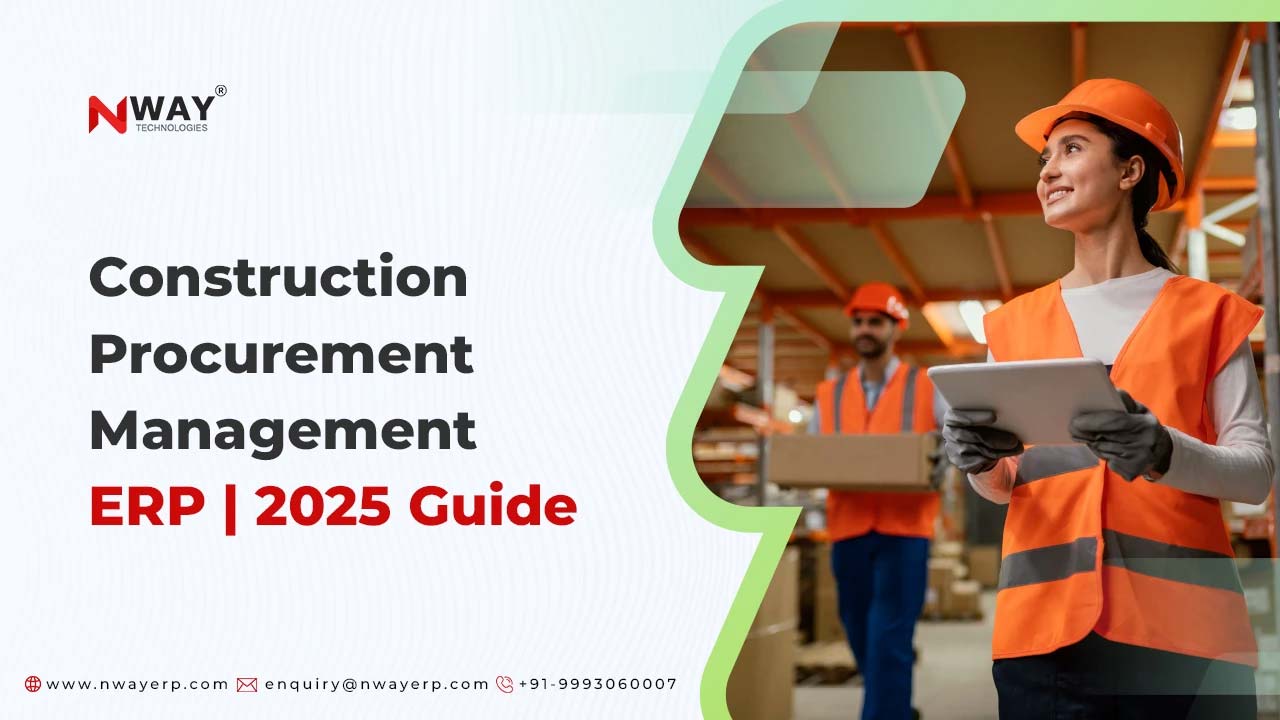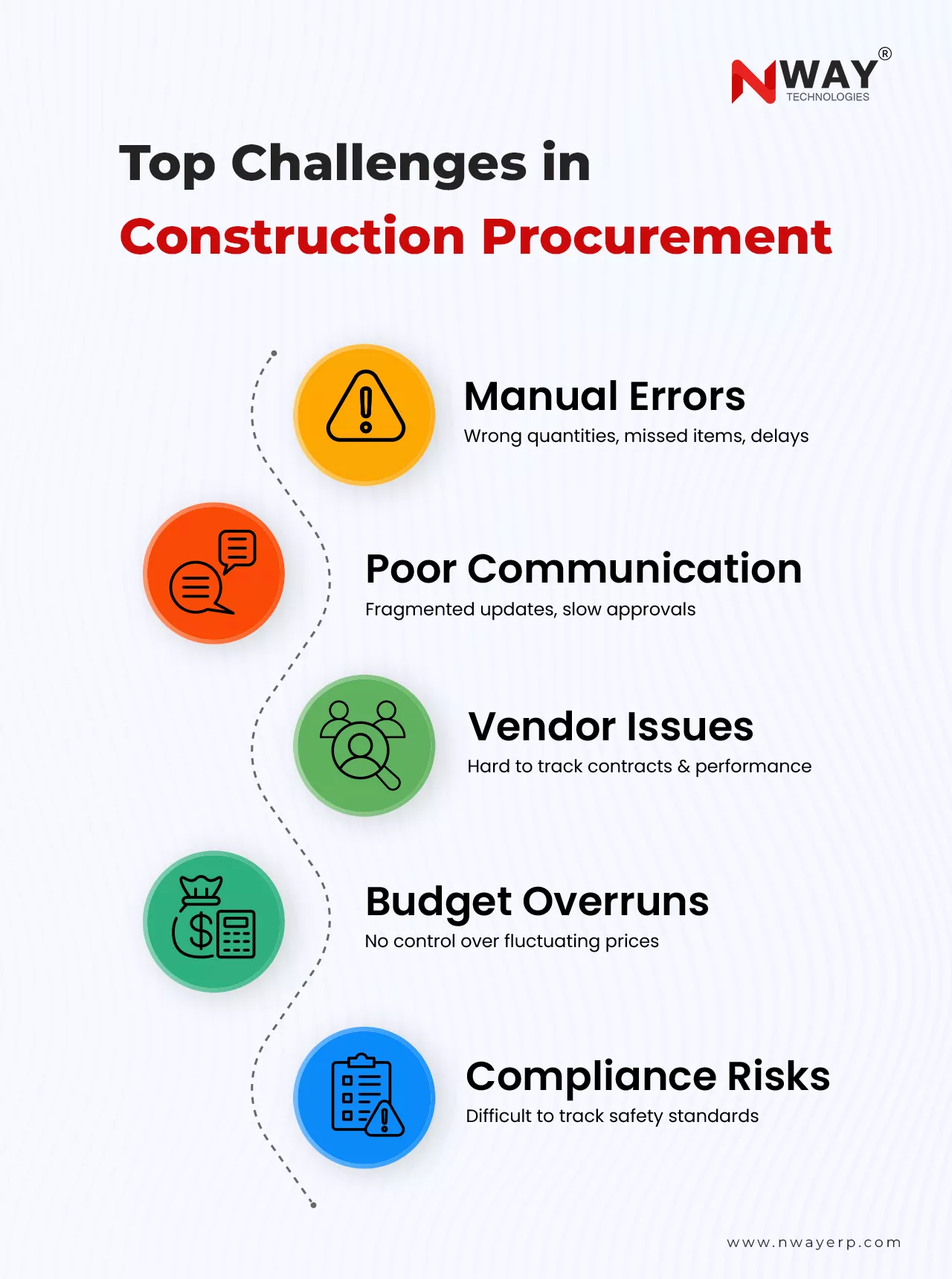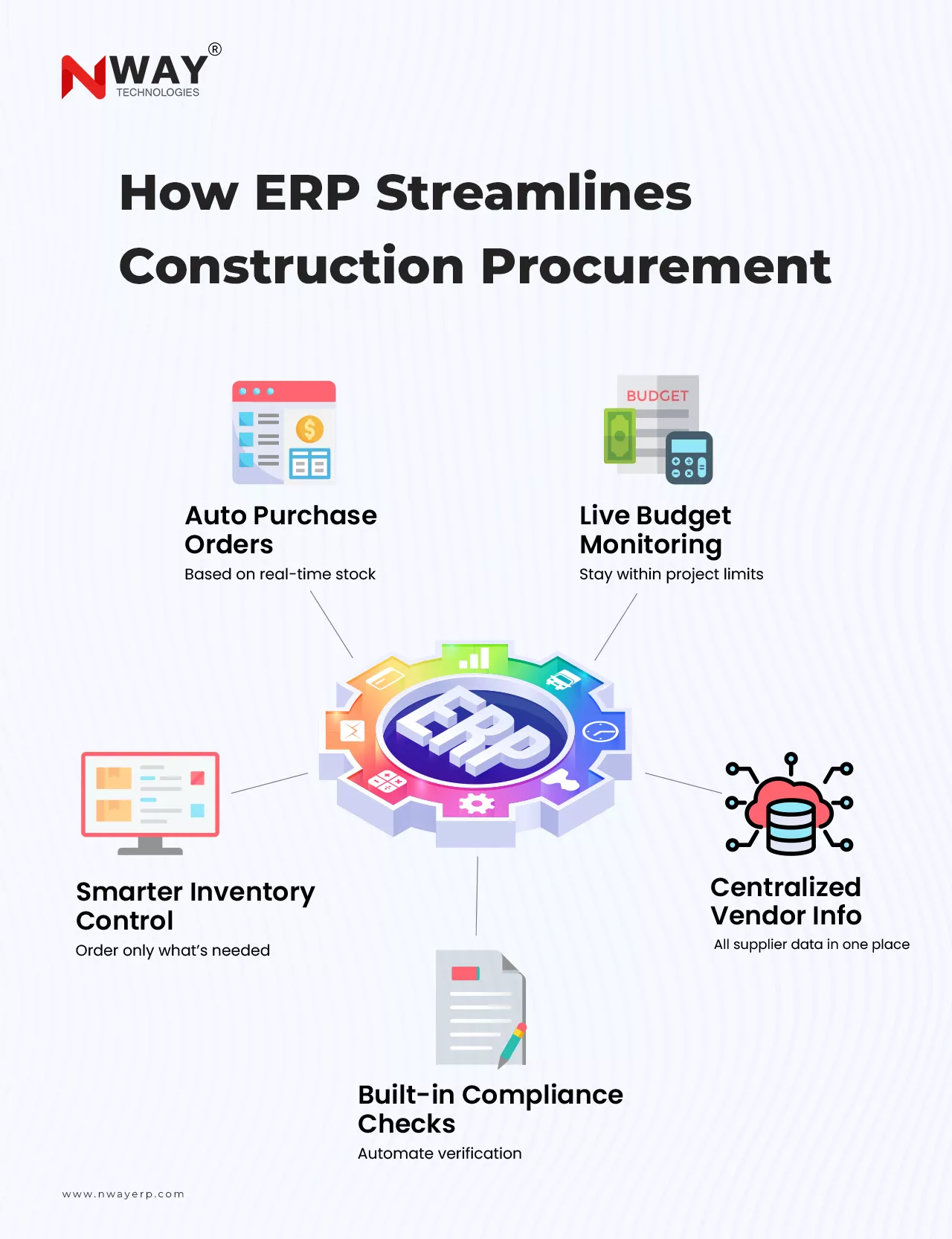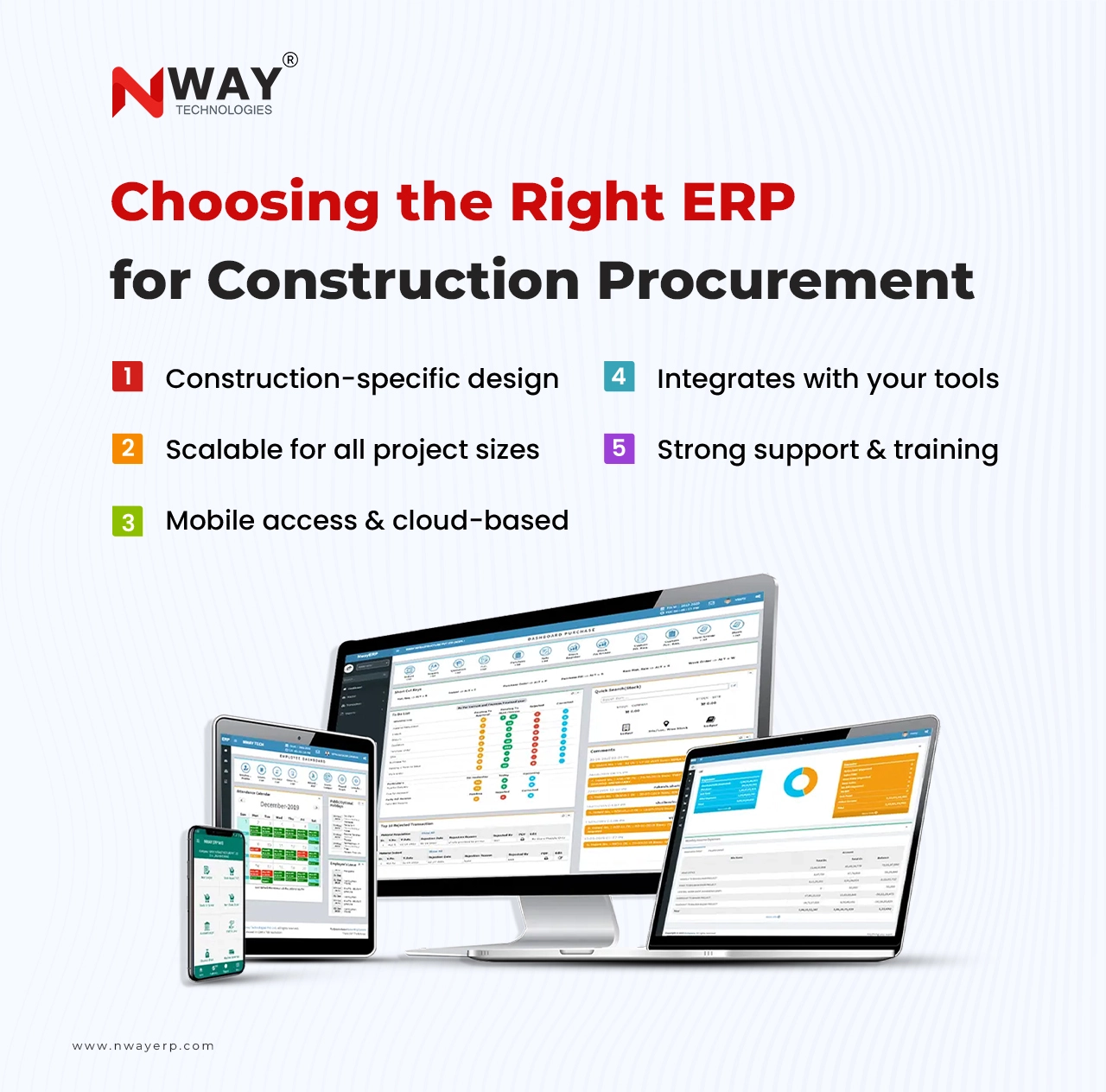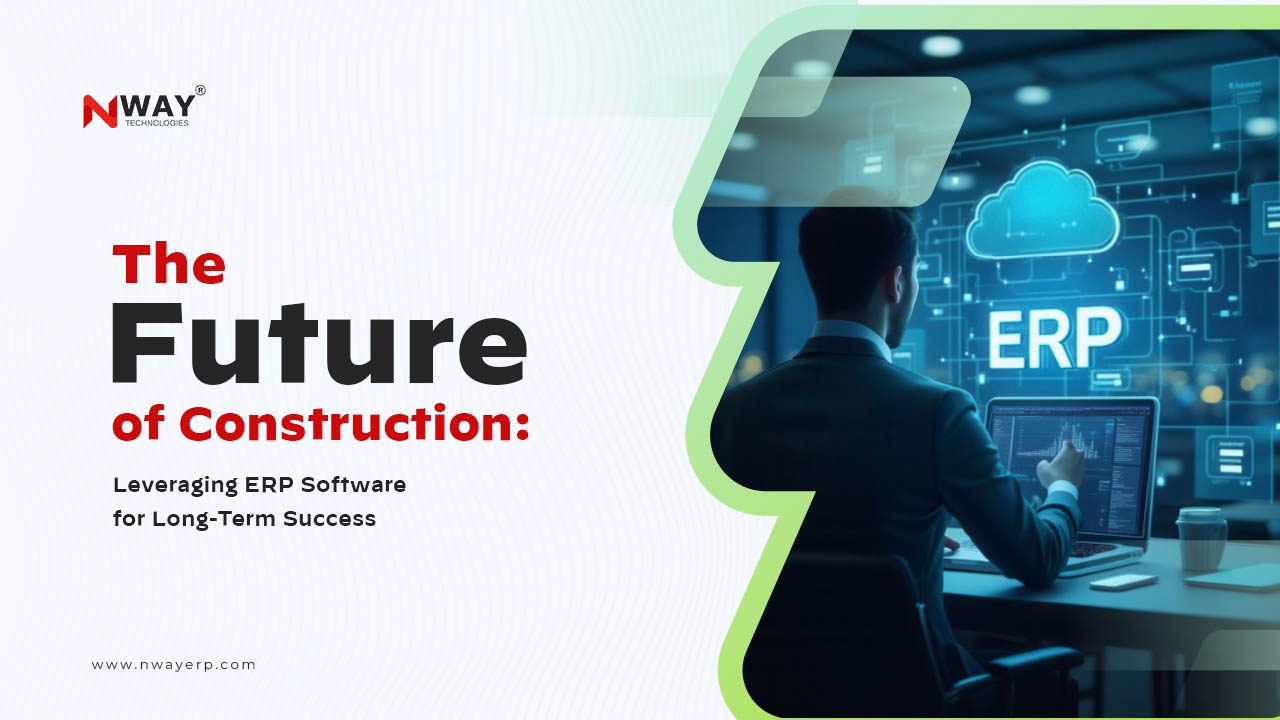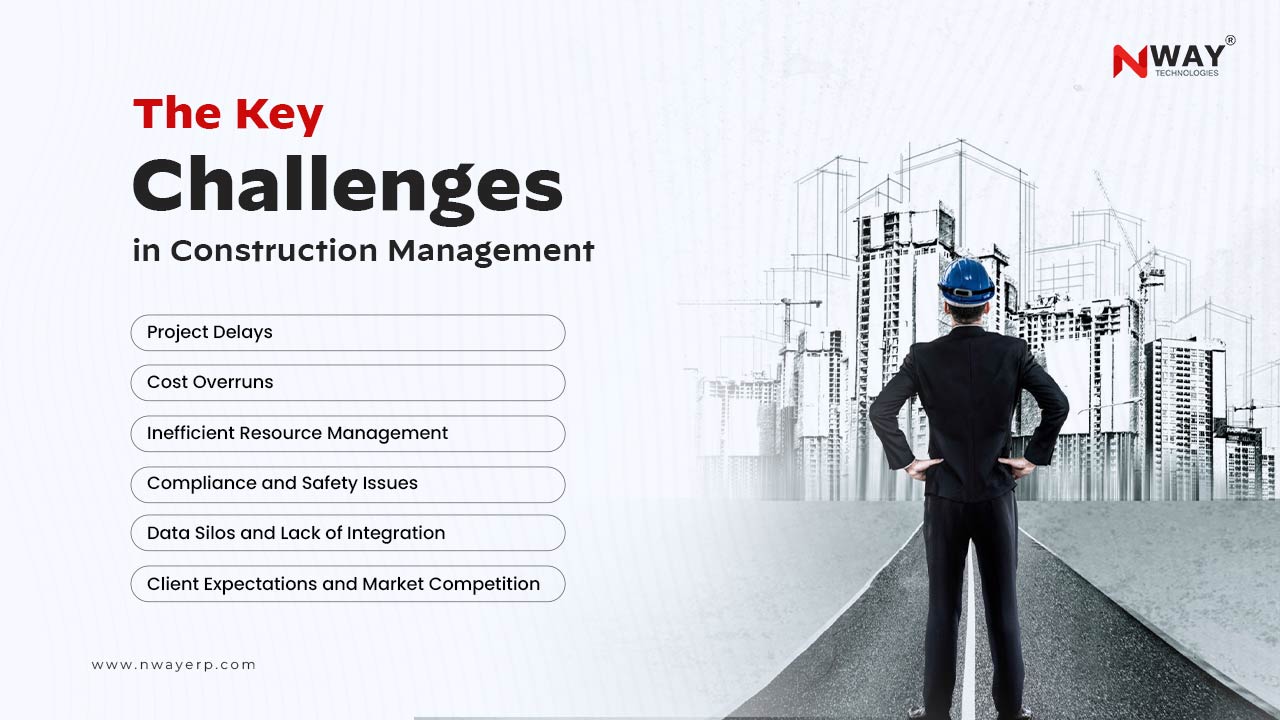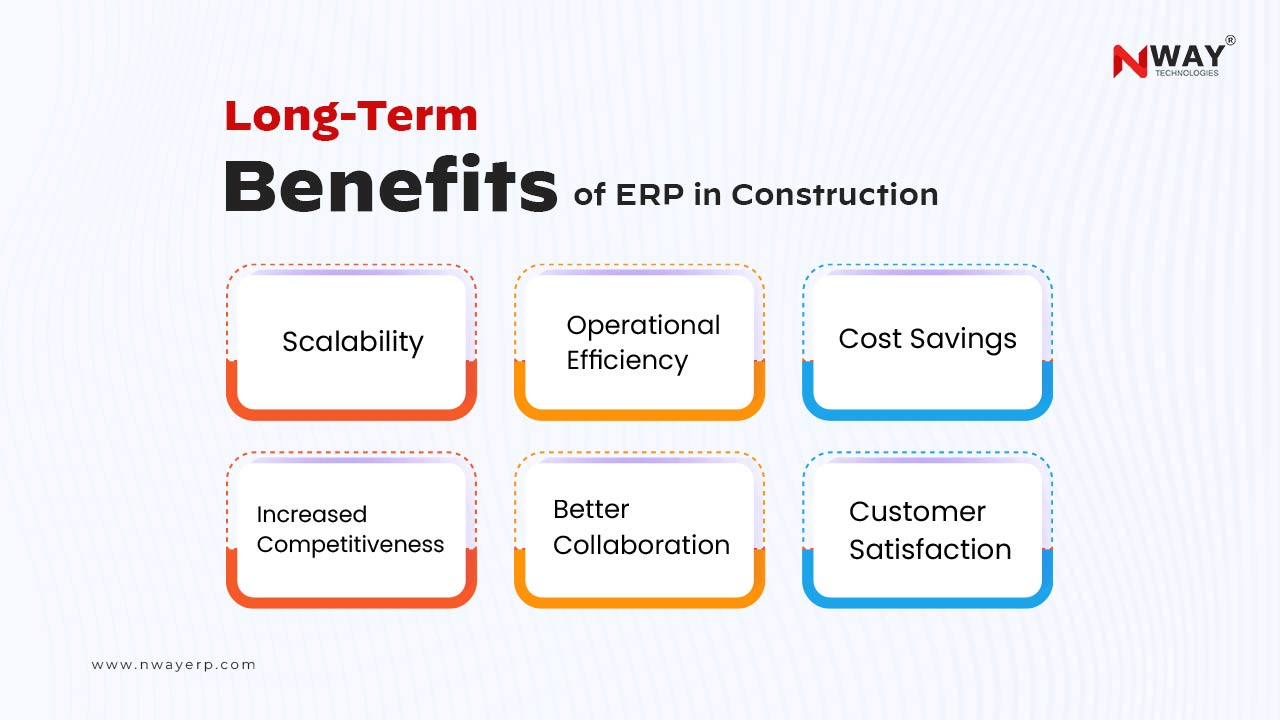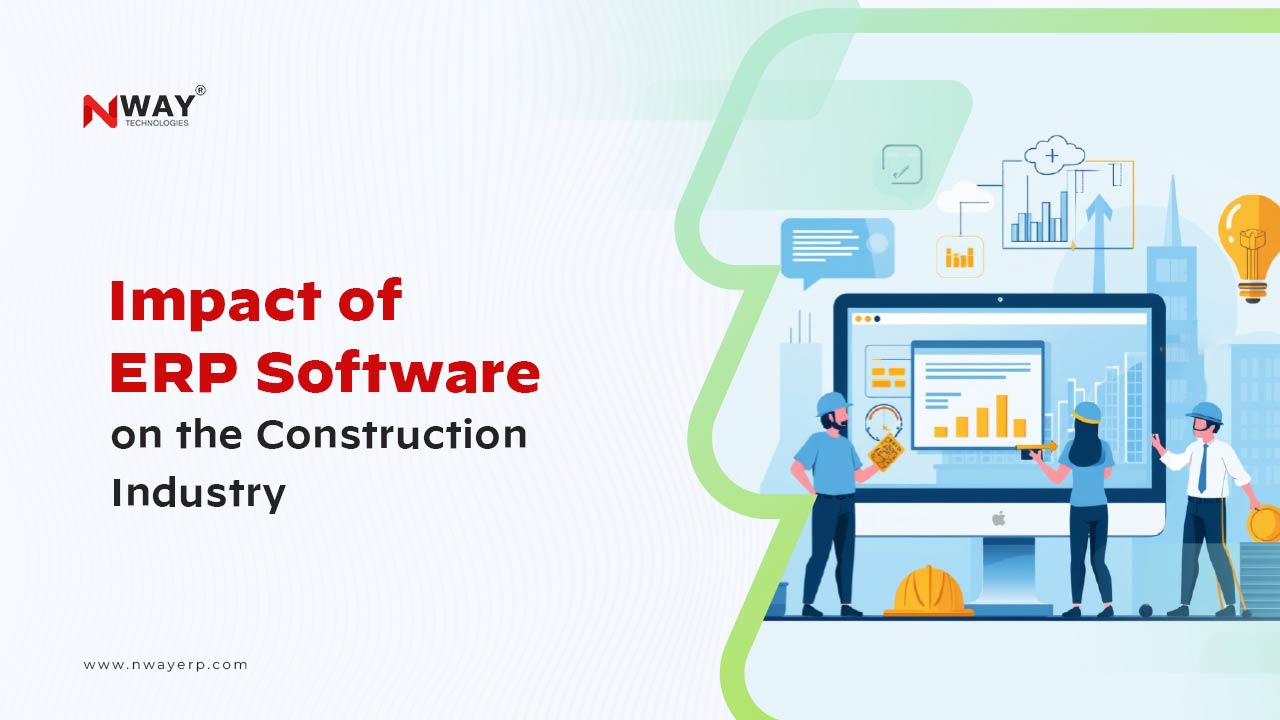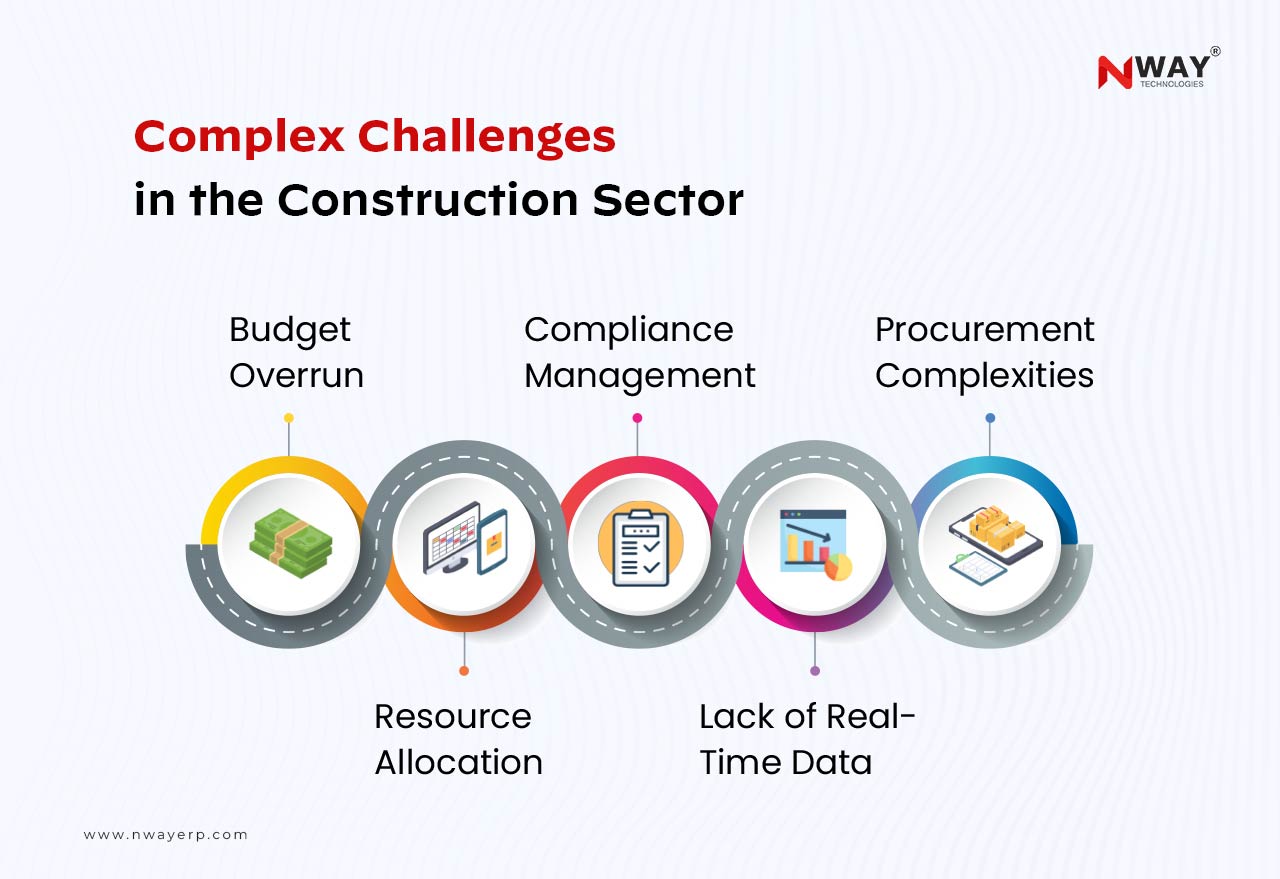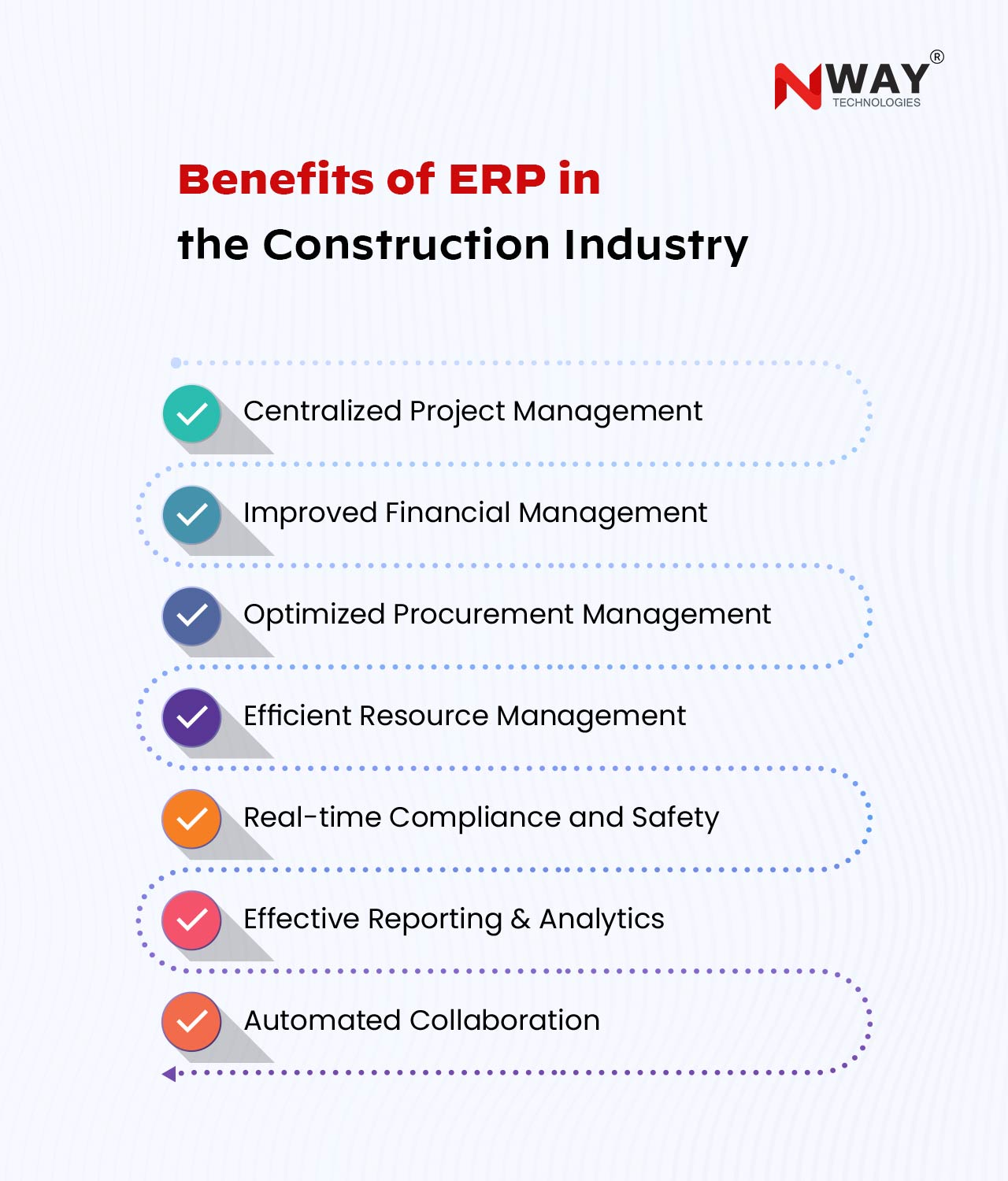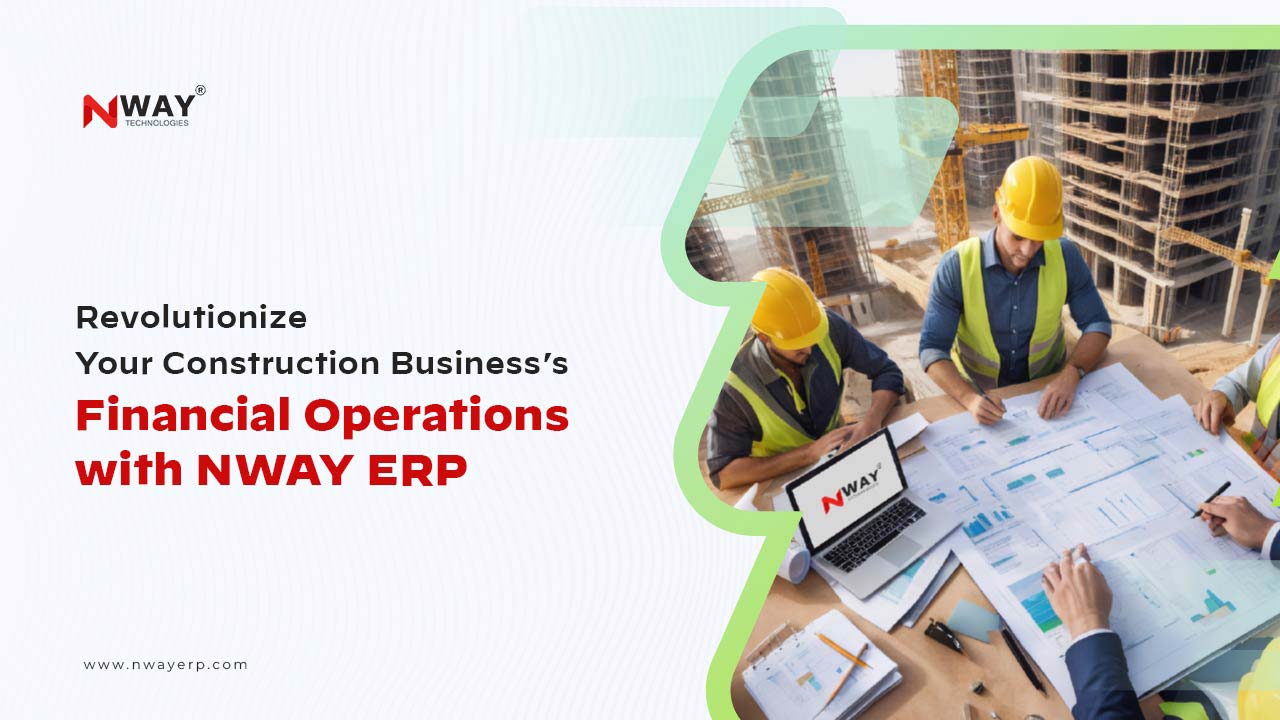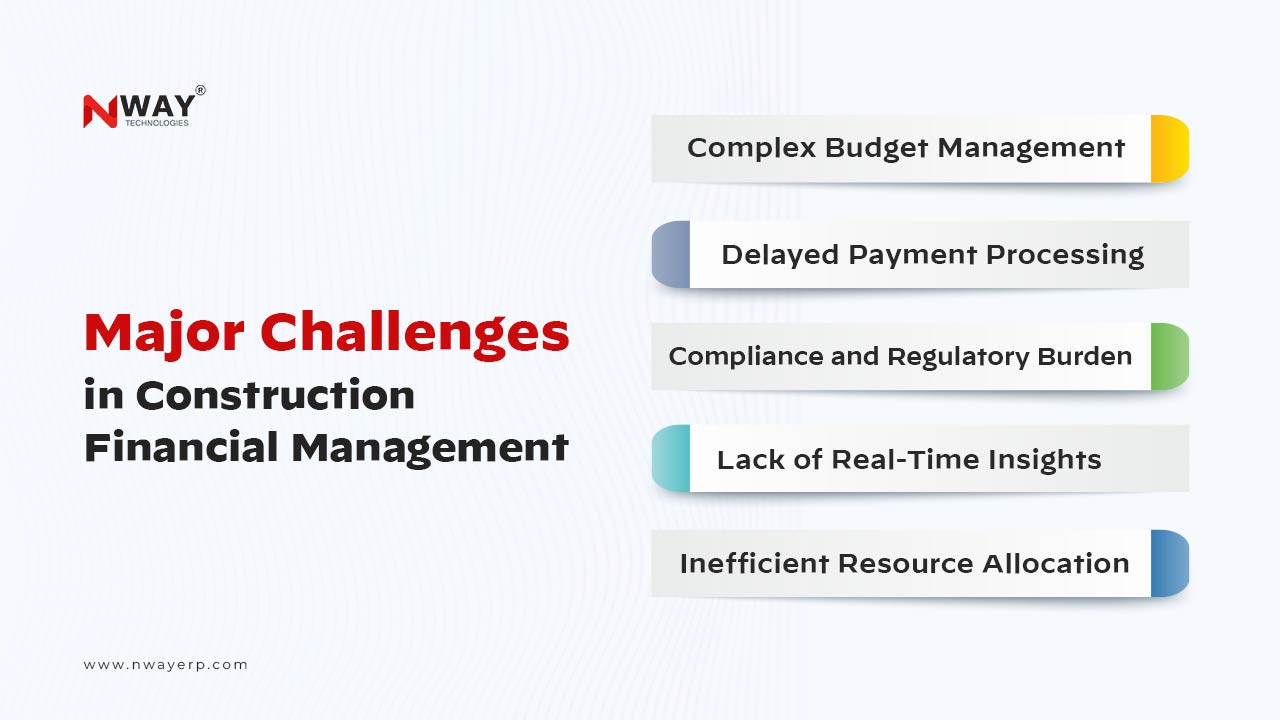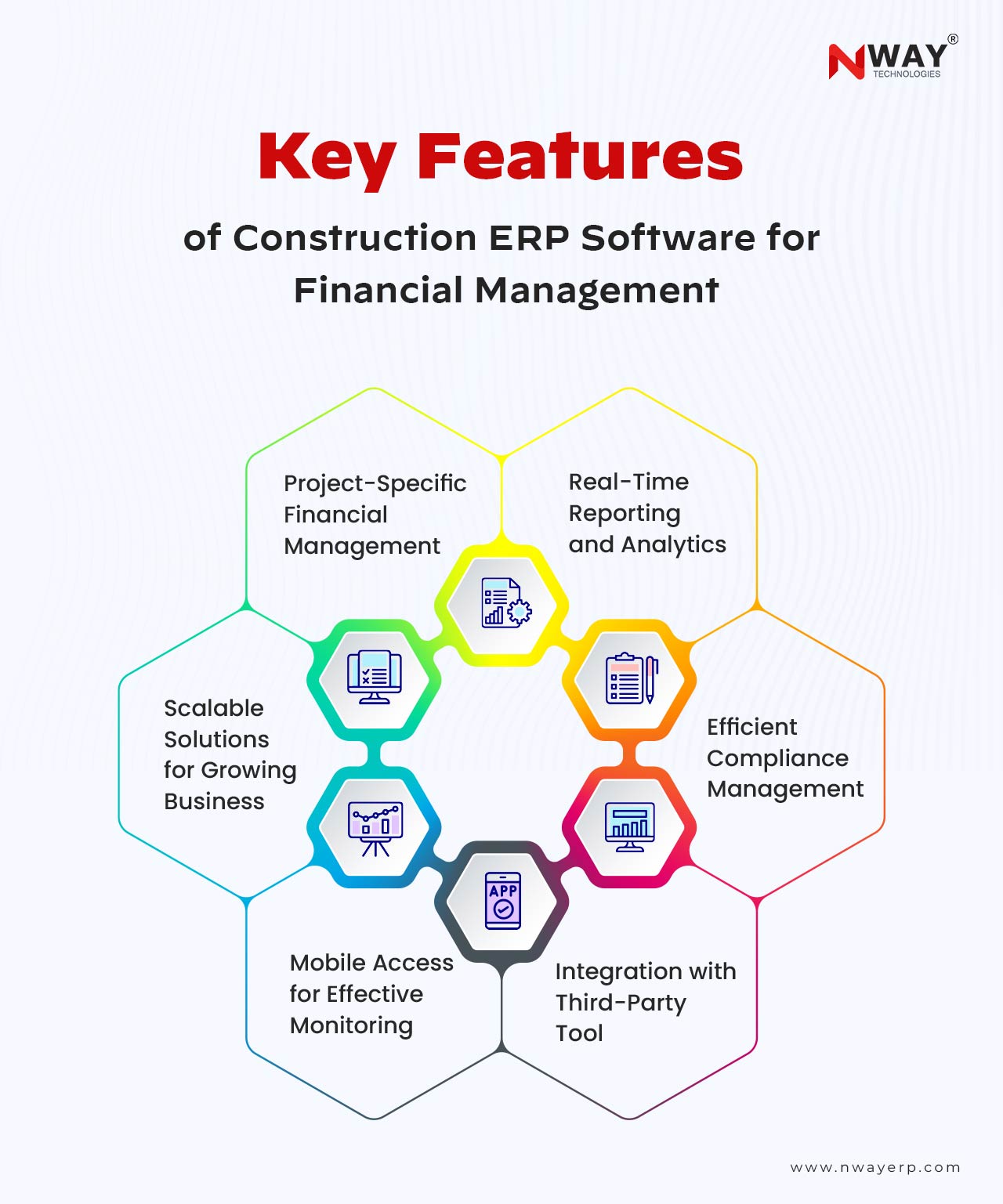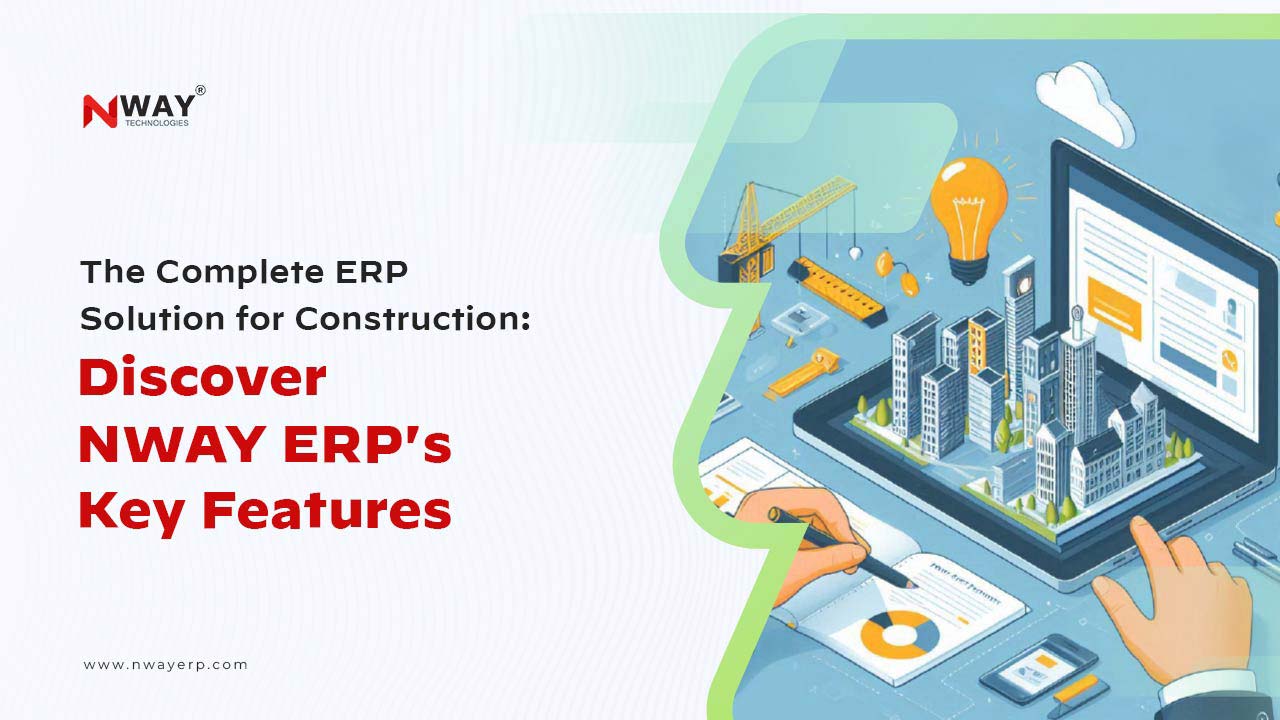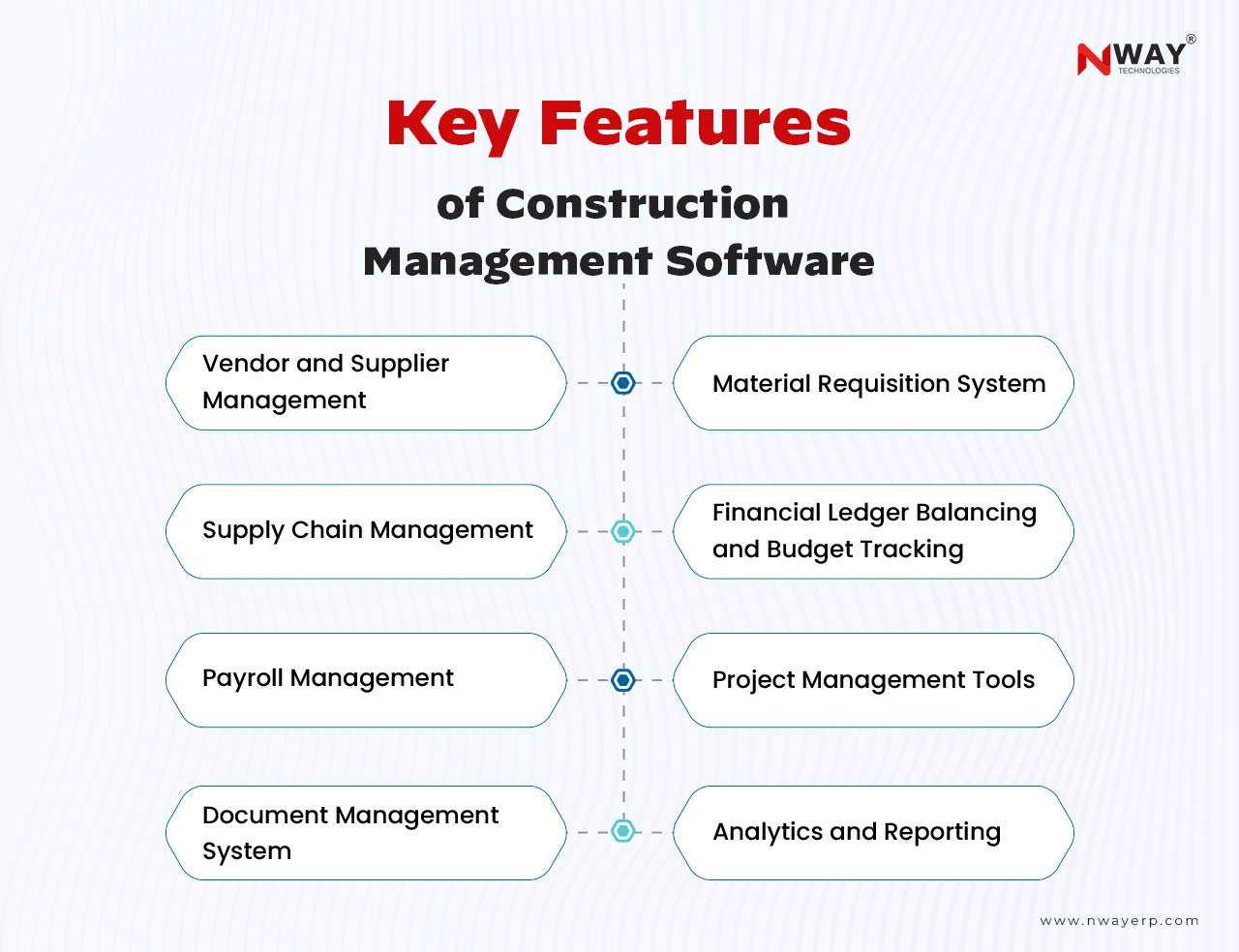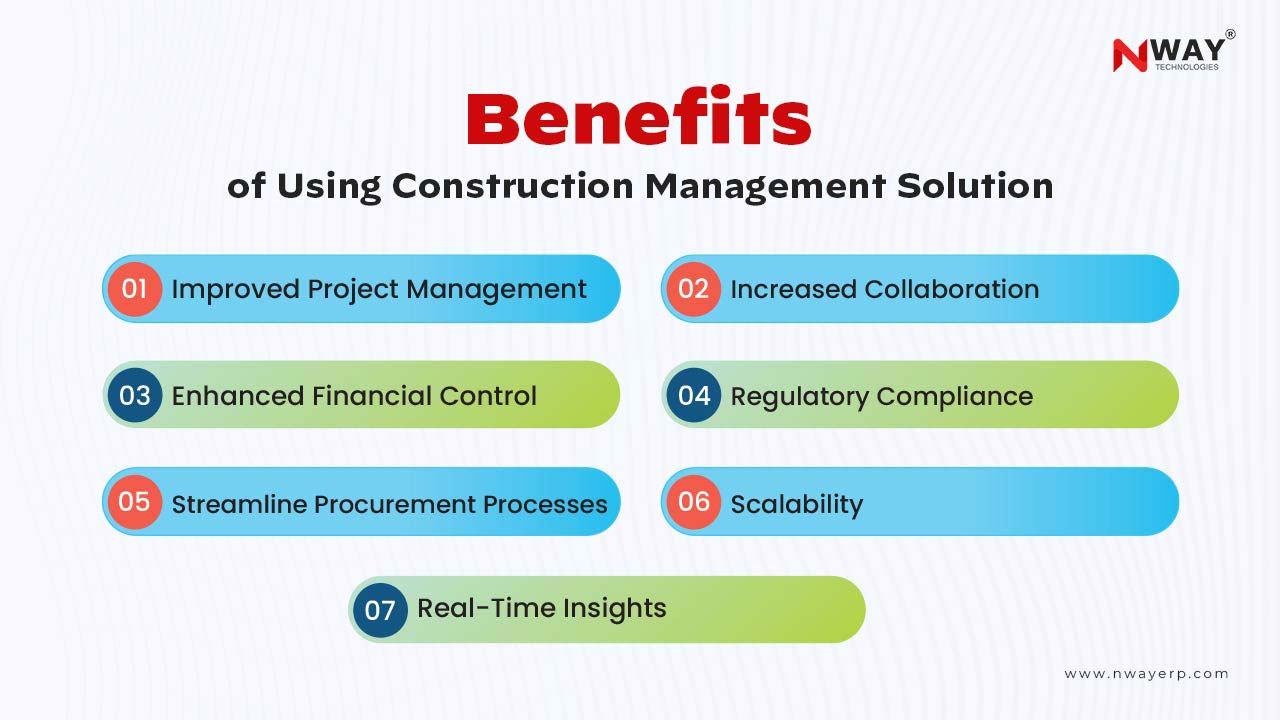Imagine you’re overseeing a construction project, and a late delivery of some important materials like steel or concrete halts work for days.
Or, a miscommunication with a supplier leads to unexpected cost increases, forcing you to juggle your routine and go out of the way to stay within budget.
These are real challenges in construction procurement management that can derail even the best-planned projects.
The solution you need is a construction management software like an ERP designed for the construction business, which simplifies the construction procurement process, minimizes errors, cuts costs, and strengthens supplier relationships.
In this blog, we’ll explore how a Construction ERP transforms procurement with practical strategies, along with actionable insights to help you deliver projects on time, within budget, and with confidence.
Table of Contents:
- What is Construction Procurement Management?
- Importance of Procurement in Construction
- Is Procurement the Most Important Element in Construction Management?
- What Are the Procurement Systems in Construction?
- Is it Possible to Use Both Management and Integrated Procurement Methods for a Construction Project?
- Challenges in the Construction Procurement Process
- How Is Automation Used in the Construction Industry?
- How ERP Software Simplifies the Construction Procurement Process
- What Are the Key Features and Procurement Benefits of Implementing Construction ERP Software?
- How to Choose the Right ERP for Construction Procurement
- Can ERP Software Replace Traditional Procurement Systems?
- What Is a Procurement ERP Solution and Why Do You Need One?
- Why NWAY ERP Is the Best Choice for Construction Procurement
What is Construction Procurement Management?
Construction procurement management is the process of sourcing materials, equipment, and services for a construction project. It involves identifying reliable suppliers, negotiating prices, placing orders, and ensuring deliveries arrive on time while meeting quality standards and staying within budget. This process is essential to keep projects on track.
Procurement represents a significant portion of construction project costs. For instance, when building a commercial office, you need to secure enough concrete for the foundation without overordering to avoid wastage.
In 2023, McKinsey reported that procurement accounts for 40 to 70 percent of a construction project’s total cost.
Poor procurement practices can lead to delays, higher expenses, or materials that fail inspections. Effective procurement management ensures timely delivery, cost savings, and quality outcomes.
Importance of Procurement in Construction
Procurement plays a central role in a construction project’s success. Without timely materials, work stops. Paying too much for supplies reduces profits. Well managed procurement processes and systems ensure you have the right resources at the right time to maintain progress and profitability.
Here’s why procurement is critical:
- Keeps Projects on Schedule: Late deliveries cause delays. Reports confirm that procurement accounts for over 50% of the total importance in EPC [Engineering, Procurement, & Construction] projects, with 90% of the cash flow relying on the timely delivery of materials and associated processes.
- Manages Costs: Securing competitive prices prevents overspending.
- Maintains Quality: High-quality materials reduce defects and rework costs.
- Supports Complex Projects: Large projects with multiple suppliers need clear coordination to avoid mistakes.
For example, during a bridge construction project, procurement ensures steel beams arrive when assembly begins, avoiding costly downtime.Construction management software streamlines these tasks for better efficiency.
Is Procurement the Most Important Element in Construction Management?
Procurement is a vital component of construction management, influencing schedules, budgets, and quality. Timely material orders keep workers productive, and competitive pricing boosts profitability. Deloitte found that companies with robust procurement processes complete projects 20 percent faster and save up to 15 percent on costs.
However, procurement relies on other elements like planning, labor management, and budgeting. A strong procurement process can’t overcome a poorly designed schedule. A well-designed ERP for construction integrates these areas, ensuring streamlined procurement that enhances overall project performance.
What Are the Procurement Systems in Construction?
Construction projects rely on various procurement systems to organize purchasing. Each system determines how you contract and acquire materials and services, and the best choice depends on your project’s scope, whether it’s a small renovation or a large infrastructure development.
The main systems include:
- Design-Bid-Build (DBB): A designer creates the plans, then contractors bid to build. It’s cost-effective but slower due to sequential phases.
- Design-Build (DB): A single team handles the design and construction, accelerating work but limiting owner control.
- Management Contracting: A contractor manages subcontractors, providing flexibility but requiring stronger oversight.
- Construction Management at Risk (CMAR): The manager guarantees costs, reducing risks but needing early collaboration.
Common Issues with Traditional Procurement Systems
Despite their widespread use, traditional procurement systems come with limitations:
- Lack of Coordination: Each phase (design, bidding, construction) is often handled by different stakeholders using siloed tools. This disconnect leads to miscommunication, project delays, and budget overruns.
- Manual Processes: Many construction companies still rely on spreadsheets or paper-based documentation, increasing the risk of human error and slowing down approvals or supplier communication.
- Limited Visibility: Without centralized, real-time data, it becomes difficult to track supplier performance, monitor inventory, or manage budgets proactively.
Construction management software like Nway ERP centralizes data and automates tasks. For more on real-time insights, read our blog on managing procurement efficiently to achieve better project success rates.
Is it Possible to Use Both Management and Integrated Procurement Methods for a Construction Project?
Yes, combining management systems like ‘Management Contracting’ with integrated systems like ‘Design-Build’ is effective for complex projects. This hybrid approach balances speed, quality, and flexibility. For instance, a university campus project might use Design-Build for lecture halls to save time and Management Contracting for specialized labs to ensure precision.
How ERP Supports Hybrid Procurement Approaches
ERP software enhances this hybrid method by streamlining collaboration across diverse procurement models — a core challenge in construction procurement management.
Here’s how it helps:
- Centralized Data Sharing: All stakeholders — designers, contractors, procurement managers — access the same data in real time, reducing friction between different workflows.
- Automated Approvals: ERP automates procurement workflows, regardless of which method is used, ensuring consistency even when managing multiple suppliers and contract types.
- Project-Wide Visibility: Real-time dashboards and reports offer clarity across all procurement tracks, so timelines and budgets remain under control.
This hybrid approach to construction procurement management becomes scalable, flexible, and far less error-prone with a powerful ERP system in place.
Challenges in the Construction Procurement Process
The construction procurement process often presents challenges that can delay projects and increase costs. These challenges affect projects of all sizes, from residential builds to major infrastructure. For example, a project manager might struggle to coordinate multiple suppliers, while unexpected price hikes can strain budgets.
Key challenges include:
- Manual Errors: Handwritten orders or spreadsheets lead to mistakes, such as incorrect quantities, causing delays and added costs.
- Communication Gaps: Without a centralized system, approvals are delayed, and suppliers receive wrong information.
- Supplier Management Issues: Tracking performance and contracts for numerous vendors is difficult without streamlined tools.
- Cost Overruns: Price fluctuations or unplanned purchases increase expenses.
- Compliance Hurdles: Ensuring suppliers meet safety and environmental regulations is complex without automation.
A procurement ERP solution resolves these issues, keeping projects on track and within budget.
See how our tailored procurement
ERP solution can save you time and money.
Get your personalized demo today!
How Is Automation Used in the Construction Industry?
Automation is transforming construction by streamlining tasks and reducing errors. Procurement automation is particularly impactful, saving time and improving accuracy for companies of all sizes in 2025.
Automation is applied in these ways:
- E-Tendering: Online platforms collect bids quickly, cutting bidding time by roughly 30 percent.
- Smart Contracts: Automatically verify contract terms for compliance and faster approvals.
- Supplier Evaluation: AI assesses vendors based on price, reliability, and performance history.
- Automated Orders: Systems generate purchase orders when inventory is low, eliminating manual work.
Construction management software integrates these tools for seamless procurement. Learn more in our blog on Why Construction ERP Software is a Game-Changer for Your Projects
How ERP Software Simplifies the Construction Procurement Process
ERP software plays a vital role in optimizing the construction procurement process by reducing manual work, consolidating data, and improving accuracy across departments. Rather than relying on scattered spreadsheets, emails, and siloed tools, construction teams can manage all procurement activities through a unified platform.
For example, ERP systems can automatically reorder critical materials like cement or gravel when stock levels drop, while simultaneously checking against budget limits — preventing costly delays and overspending.
Key ways ERP simplifies the construction procurement process include:
- Automated Purchase Orders: Automatically generate and route purchase orders based on inventory thresholds and project timelines.
- Centralized Supplier Management: Store vendor contracts, performance history, certifications, and communication in one accessible system.
- Real-Time Budget Control: Instantly flag discrepancies between procurement costs and allocated budgets to avoid financial overruns.
- Inventory Integration: Connect procurement decisions directly to real-time stock data, reducing shortages and eliminating waste.
- Regulatory Compliance: Ensure all vendors meet required safety, environmental, and legal standards through automated tracking.
By digitizing the procurement workflow, ERP helps construction companies speed up execution, reduce costly errors, and build stronger, more reliable supplier relationships- all while keeping projects on track and under budget.
What Are the Key Features and Procurement Benefits of Implementing Construction ERP Software?
Construction management software equips teams with tools to enhance procurement and project management efficiency. By centralizing data and automating processes, ERP for construction helps improve decision-making, reduce costs, and provide better control across single-site and multi-project operations.
Key Features:
- Real-Time Dashboards: Track orders, deliveries, and budget usage instantly.
- Vendor Management: Monitor supplier performance, contracts, and communications in one platform.
- Mobile Access: Approve orders and review procurement needs from anywhere.
- Automated Reporting: Generate real-time reports on spending, compliance, and procurement activities.
Benefits:
- Time Savings: Reduces manual processes, freeing up time for strategic tasks.
- Cost Savings: Automates budget tracking and prevents overspending.
- Error Reduction: Minimizes human errors through automation.
- Improved Supplier Relationships: Strengthens supplier communication and performance.
- Scalability: Grows with your business, adapting to projects of any size.
Implementing Construction ERP Software can significantly streamline the construction procurement process, improving efficiency, vendor management, and overall project outcomes
How to Choose the Right ERP for Construction Procurement
Selecting the right procurement ERP solution is crucial to optimizing your construction procurement process. The ideal software should align with your project needs and streamline your workflow. With numerous options available, it’s essential to prioritize features that specifically address the challenges faced in the construction industry.
Consider these factors when evaluating a procurement ERP solution:
- Construction-Specific Design: Opt for software built specifically for construction projects, providing tools tailored to job-site complexities.
- Scalability: Choose an ERP that can scale with your business, whether you’re managing a single project or multiple, without compromising performance.
- Customizability: Ensure the solution can adapt to your specific procurement processes and workflows.
- Reliable Support: Select a solution offering 24/7 support and training to ensure smooth implementation and ongoing assistance.
- Cost-Effectiveness: Cloud-based ERP systems are more affordable and flexible compared to traditional on-premise solutions, offering better ROI.
- Compatibility: Ensure the ERP integrates smoothly with your existing tools, such as accounting software or project management platforms, for seamless data flow.
Choosing the right procurement ERP solution is a critical step in improving procurement efficiency, reducing errors, and enhancing collaboration across your construction projects.
Slash project delays by up to 30%
Centralize your procurement with Nway ERP.
Can ERP Software Replace Traditional Procurement Systems?
ERP for construction surpasses traditional procurement systems in most scenarios. Traditional methods, relying on spreadsheets, paper orders, and emails, are slow and error-prone. A well-designed Construction ERP automates processes, delivers real-time data, and connects project teams.
For example, a traditional system might delay a project due to a missed order, while ERP ensures timely delivery through automation. For complex projects, ERP is superior- though small, simple jobs can still use traditional methods.
What Is a Procurement ERP Solution and Why Do You Need One?
A procurement ERP solution is a module within a ConstructionERP software that manages purchasing tasks, including suppliers, orders, inventory, and compliance. It consolidates these functions into one platform, integrating and simplifying foolproof procurement automation for construction projects.
This solution saves time, reduces costs, and improves control. In 2025, GM Insights noted that the construction procurement software market is growing at 8.5 percent CAGR through 2032, highlighting its importance.
Here’s why you need it:
- Time Efficiency: Automates repetitive tasks.
- Cost Reduction: Identifies savings through spending analysis.
- Enhanced Visibility: Offers real-time data on orders and suppliers.
- Regulatory Compliance: Ensures suppliers meet standards.
- Competitive Advantage: Faster procurement improves bid success.
Why NWAY ERP Is the Best Choice for Construction Procurement
At NWAY ERP, we know procurement challenges- late deliveries, rising costs, and supplier missteps- can disrupt your projects. Our cloud-based, mobile-friendly ERP is designed to simplify construction procurement management for contractors and developers working on projects of all sizes.
And this is just the tip of the iceberg-
- Efficient Orders: Create and approve orders quickly, reducing processing time by up to 40 percent.
- Real-Time Insights: Track inventory, budgets, and suppliers with user-friendly dashboards.
- Supplier Management: Monitor performance, manage contracts, and communicate seamlessly.
- Compliance Automation: Ensure suppliers meet safety and environmental standards effortlessly.
- Scalable Solutions: Customize features for any project size, backed by 24/7 support.
Construction firms across India rely on Nway ERP to optimize procurement. To explore cost-saving strategies, read our blog on how construction engineering software can cut your costs by 20%
Conclusion: The Future of Construction Procurement Is Smarter and More Efficient with Nway ERP
Construction procurement management is all about simplifying the process. With our ERP for construction, managing procurement becomes seamless, boosting efficiency, reducing errors, and enhancing collaboration across teams. By centralizing data and automating tasks, you can improve the accuracy of your purchases, streamline workflows, and maintain better control over your budget- all without the usual hassles.
Procurement ERP solutions are more than just tools; they are catalysts for change. When you implement a solution like Nway ERP, you’re not just upgrading software- you’re improving the way your business handles procurement, from order to delivery.
By embracing our construction management software that works with your processes, you can elevate your construction procurement process to new levels of efficiency and reliability.
